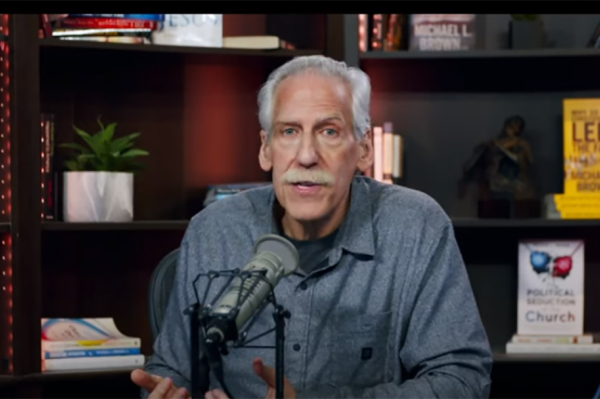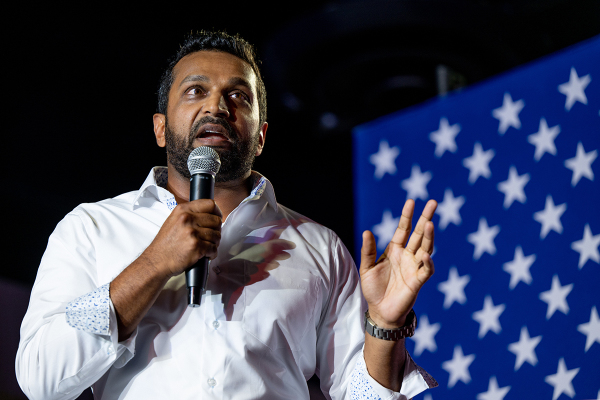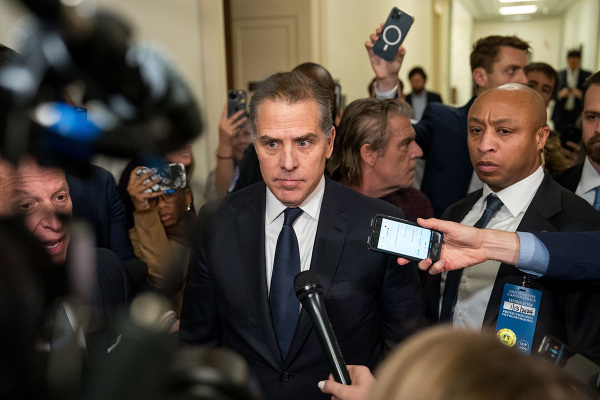Dr. Clark H. Pinnock: Voice of Open Theism
Dr. Clark H. Pinnock, one of the leading proponents of Open Theism, took some time to speak to the Christian Post on June 2, 2005.
What is Open Theism(OT)?
OT is a fresh branch on the tree of Free will theism. It’s a theological model, which takes a libertarian stance on freedom. Libertarian stance on freedom denies middle knowledge, and therefore, believes that God manages the world without the degree of control and foreknowledge of contingent events that have been traditionally ascribed to Him.
You can also say that OT is a form of a relational theism, which sees God as entering a reciprocal relationship with His creature and experiencing genuine give and take relation. God is the one who interacts with us and to whom we make a difference. That’s what makes it special and that’s why people like it. Because God does not force His love on us, but even makes Himself vulnerable to the risk of being rejected.
If humans reject Him, then God is frustrated. He wants to love them but He can’t because they don’t want it. We can reject God and that affects God and He doesn’t like that. That makes Him sad, whereas in traditional theism, nothing can make God sad because it’s been decided. So why would you be sad?
OT is a doctrine of a limited providence - the idea that He could control everything, but chooses not to. Instead, He restrains himself of the autonomy which is granted to human agency. What OT does in a nutshell is to add one feature to Free will theism. It states mainly that if aspects of the future remain unsettled, owing to human freedom, then a proportion of future does not exist yet to be known by anyone, even God. It doesn’t seem much of a limitation on God to say He cannot know what cannot be known.
People say that OT doesn’t do justice to God’s complete foreknowledge, but that aspect of the future, which hasn’t been decided for your future and also the decisions you’ll make means that there are some things not there to know. Nobody knows exactly what you’ll do in the future. Even He [God] doesn’t know exactly what you may decide to do and we don’t think it’s a limitation. That’s just the way He made the world. He made the world with an open future so that people might choose freely and be responsible. Thus, His knowledge is complete. He knows everything that could be and might be but not everything that will be.
That’s the thing that gets people the goat, that last part. But, I think it’s perfectly reasonable.
If it isn’t known today what you will be doing next Thursday, no one can know it because it isn’t knowable. You haven’t made that choice. God looks at the world the same way. Namely, He knows that you’ll make a decision next Thursday that He’s not entirely sure of. Though He may know a great deal about it more than anyone else, you can still surprise Him. So the element of surprise is another element or a feature or a risk. God took a risk in creating a world that could go wrong. That’s also the nice thing to the problem of evil because we have an answer to evil in a sense that it arises from people choosing against what God wills for them, which He gave the power to do, but didn’t want them to do.
How did you come to take stance in Open Theism (OT)? Was there a particular incident that led you to it?
I’m sure there are always factors that lead us to believe what we do. For example, my experience with prayer and whether that can affect God - that’s a natural thing to think of and that leads to Open theism. But mainly it’s been more of my thinking about God and God’s character over the years that I kind of shifted over to this view.
It was actually in 1971 when I had decided on this. Basically, it was a matter of rethinking. I was rethinking that God’s sovereignty was so much a meticulous; all controlling-sovereignty was more of a general direction and guidance in the world which left room for us.
So I’m opposed to a deterministic approach in favor of relational one. Of course, for lot of people OT is really very common. People don’t call it that, but when you explain that means I have something to contribute to the world history and I say yes, that is exactly right. Whereas if all was decided, it is hard to see why you’d put so much effort because you can’t change anything anyway. With OT, you’re in a position to change the world to at least some small degree.
Early this year, a professor in Huntington University, a Christian liberal arts school, was dismissed from the college due to his position in OT. Can you explain about the conflict involved?
Yes, his name is John Sanders and Huntington was famous and well known for this [OT] and some of the members of the board, not the faculty, felt it hurts us to have him here. The faculty liked him and so did the president, but the board disagreed and eventually they got the vote and gave him a good settlement. I think he has two more years of being paid, supported by them but he has finished teaching.
Another person taught at Huntington named William Hasker. He taught there for forty years and had exactly the same view as Sanders, but because he was a philosopher and not a theologian and because he was not going around talking about it as much as John did…. I think John suffered for being successful. John was successful in getting this out and I think that’s what these people don’t want you to be good at. If you’re holding it, that’s bad enough, but if you’re successful in disseminating, that cannot be tolerated.
What are some major criticisms about OT coming from the opposite end of the theological spectrum?
The sharpest critics are the Reformed of Calvinistic critics who hold a strong view of predestination. Therefore, they dislike all this talk about the human freedom and God’s relationality. They’re the most vociferous of all. However, in the world today many people who are reformed or Presbyterian don’t particularly criticize it [OT] so it’s a certain group of conservatives who got their feathers ruffled. I expect that because they should be for we did stick it to them a bit. This is an old debate - Arminians and Calvinists have been at each other.
Arminian theology can be called Wesleyan Arminianism or Free will Theism. The two groups have always debated over this topic and the debate is still happening, Yet, this is a new outburst of FWT, because we had a new way of putting it - we put it in a new way that struck them as dangerous and a little worse than earlier versions because we put in this “foreknowledge” aspect, which wasn’t a part of it before.
Although it is a version of Free will theism, Open theism adds a feature which sets it apart. It has something different to say about the divine omniscience. We speak of the “present knowledge” of God where we believe that God knows everything that can be known, but that the future free acts of human beings are not yet reality and (therefore) cannot be known. Of course it is no defect for God not to know what is unknowable! God made a world with free creatures in it, creatures that can make a difference. How could they possess libertarian freedom, if God knew ahead of time exactly what they would do. God could know the future exhaustively if everything was determined. This is the position of Calvinism. But the biblical narrative is dynamic and cannot be interpreted in a deterministic framework. We see the future as something still being worked out.
In your book “Most Moved Mover,” you cite that prophecies often go unfulfilled. This statement seems to have irked some scholars who even requested revision for future editions. What do you mean by this statement?
A lot of prophecies are conditional, meaning that this will happen, if this other thing happens. So the prophecies are often very open and they can be conditional where if people repented, God wouldn’t do what He was going to do. In the case of Nineveh, He predicted that He’s going destroy Nineveh, period. But He didn’t in fact do it because they repented. So in other words, prophecies may be falsified by something happening that would change it.
There are some good examples where a prophet would predict some things that didn’t happen because something else happened first. There are a lot of different kinds of prophecies and it’s a complicated matter, so I’m not sure I can explain everything, but often prophecies are what God’s stating what He will do, not what He knows. He says I’m going to bring this to pass and He’ll do that not because he knows it, but because He intends it.
Thus, a lot of prophecies are intentional. “I will cause this to happen in this way” and it’s not a question of knowing so much as determining. He’s going to do it in any case.
There is also a conditional kind where in Jeremiah, God says “If you continue to disobey me, you will perish, but if you repent, you won’t.” So God gives them a choice and why would this be a real choice? If it’s all settled, it won’t be a real choice because one or the other is going to happen. Obviously, God is trying to get them to repent and in effect saying that the future is open, you can go this way or that way.
There are different kinds of prophecies and a few of them would be hard for us to answer but for the most part we can, because of their conditional nature - this will happen if that happens.
Jonah is a great idea of this because you see that God promises one thing and doesn’t do it. In fact, Jonah complains that He wasn’t consistent and he says I know you’re going to change your mind on this, so I’m not going. If I go to Nineveh and they repent you’re going to forgive them and I don’t want you to so, I’m not even going. It’s a great book that has that element in it. He [God] doesn’t want to judge them because that’s not in His heart so He’ll change His mind. Moses tells God to not destroy the people because if he does, what would the Egyptians think and he’ll look bad. So God relents of the evil that He said He’ll do and didn’t do it because Moses prayed. This is a perfect example where a prophecy is altered because someone did something that made it inexplicable. That’s in Exodus 32.
In a way the predictions weren’t solid, but conditional. Most of them apply conditionality but they don’t say it. It’s an objection to us on how we handle the stuff because we’ve made a little problem with it. Determinists can handle that stuff so easily because they’re determinists anyway so all of these things can be just as they are. But, the Bible text doesn’t support that because Jeremiah says no situation is that God is working with some play and if it gets spoiled He will just start over. It wasn’t His idea that it goes wrong, but if something does goes wrong, He’ll start all over. So it’s very much free will.
We have a lot of scriptures that support it, but not all because no position has everything on its side. Even Calvinists have some verses.
OT has been an issue debated over the past decade since it was first introduced by the book “Openness of God” – a collection of five essays, one of which you have written, advocating OT. Most of the attention brought to this issue came from the Evangelical Theological Society (ETS), which some of its members charged you and Sanders’ denial of biblical inerrancy in your books. Can you comment on this?
There was an attempt to reject me at ETS, but it failed because of the nature of argument. I got 400 votes in favor of and 200 against. The society runs a business meeting and anyone can stand up theoretically and say “I’m going to bring a charge to a fellow member” and that’s what happened so they had to have a process whereby they had me interviewed by the committee.
The society is meant to be where different kinds of evangelicals can gather and talk about things and it really wasn’t a good idea to charge me with that [biblical inerrancy] because this is not a church. We’re at a society where we talk about things. So I think most people felt this was a bad thing to do and I’m glad it didn’t work.
The reason inerrancy comes up is because the society has a very brief statement of principles to join and one of them is the inerrancy of the Bible and the only way to get anyone out is by proving that they don’t hold it. Since I could show that my interpretation of the Bible in this way is reasonable and they saw that there’s no reason to throw me out, it didn’t work.
It [statement] is a pretty blunt instrument. What does it really tell you? It tells you that you really trust the Bible but what else? It doesn’t tell you what’s going to be in there. So it doesn’t work and a part of it is because they don’t have a creed and if they had a big creed where they had all these things in it like you can’t believe that God doesn’t have foreknowledge then of course we can be kicked out. But if they want to do that, they have to change their constitution and I don’t think they’ll do that.
Some conservatives like to keep the group smaller or more like themselves and most of us like to see it more open and not less. It’s a bit of a struggle within the society mainly to decide whether they want to persecute the views that are kind of novel or let them be and keep to themselves.
The native Canadian Clark H. Pinnock is Professor Emeritus of Systematic Theology at McMaster Divinity College, member of the Faculty of Theology at McMaster University. He had previously taught in the U.S. at Trinity Evangelical Seminary, Regent College, and New Orleans Baptist Theological Seminary before coming to McMaster. He says he belongs to a wonderful charismatic Baptist church where he has found a good group with great ethnic diversity.
He is also an author of over a dozen theological monographs including A Wideness in God's Mercy: the Finality of Jesus Christ in a World of Religions (Zondervan, 1992), Unbounded Love: a Good News Theology for the 21st Century (InterVarsity/Paternoster, 1994; co-authored with Robert Brow), Flame of Love: a Theology of the Holy Spirit (InterVarsity, 1996), and Most Moved Mover (InterVarsity, 2001).






















